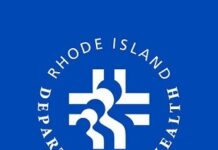Sitting barely 6 feet away from me, my patient yelled angrily, his face mask slipping to his upper lip: “No, I will not get vaccinated. And nothing you do or say will change that fact.” He provided no reason for why he was so opposed to the COVID-19 vaccine.
As a primary care resident physician working in an underserved area of Reading, Pa., I have seen patients of all age groups refusing to follow COVID-19 guidelines such as wearing a mask, social distancing or getting the vaccine.
Exposure in health care settings has accounted for a large number of infections. Early on in the pandemic, health care workers and their household members accounted for 1 in 6 patients ages 18 to 65 admitted to the hospital with COVID-19. Vaccines reduced that risk considerably, and by August 2021, the risk of infection to health care workers had been cut by two-thirds.
When a patient refuses to get the vaccine, a health care worker usually gets involved to counsel that patient. The results may not always be favorable. Many in the medical community believe that the onus is on the patient to get vaccinated, and if they do not do so, they should be seen as culpable for contracting COVID-19.
As new variants of COVID-19 emerge and pose threats to everyone’s health, doctors are struggling with their obligation to “do no harm” and their obligation to respect patient autonomy. As much as physicians are directed to “do no harm” to the patient, they must also “do no harm” to everyone else.
Ethical theories may help provide an understanding of the physician’s duties.
German philosopher Immanuel Kant developed the concept of an absolute, universal reason to act from duty. In this theory, it would appear that educating patients to get vaccinated is not just something physicians have the option to do, but something they have a moral duty to do.
While doctors cannot force the patient to get vaccinated out of respect for the patient’s ability to make informed decisions, doctors have a duty to educate their patients on COVID-19, the vaccine and the importance of protecting other patients and the general public.
This also raises an important issue of patient autonomy. Autonomy is one of the pillars of bioethics, and it is the notion that the patient has the ultimate decision-making power. There is no denying that a patient’s decision-making responsibility is important. After all, patients want the best for themselves, and respecting their decisions is respecting their well-being.
However, some scholars are also discussing the idea that the doctor knows best. This concept, known as “paternalism,” is the idea that physicians ought to be the ones to ultimately make the decision for what is ethically right for the patient, as physicians know better.
In my personal practice, I have been successful in changing people’s minds about the vaccine through education and counseling. But what patient autonomy should look like as we learn to live with COVID-19 and how the doctor-patient relationship might change are questions left unanswered. The conversations on these issues are just getting started.
Dr. Ryan Liu is a family medicine resident physician at Pennsylvania State University. Distributed by The Associated Press.










